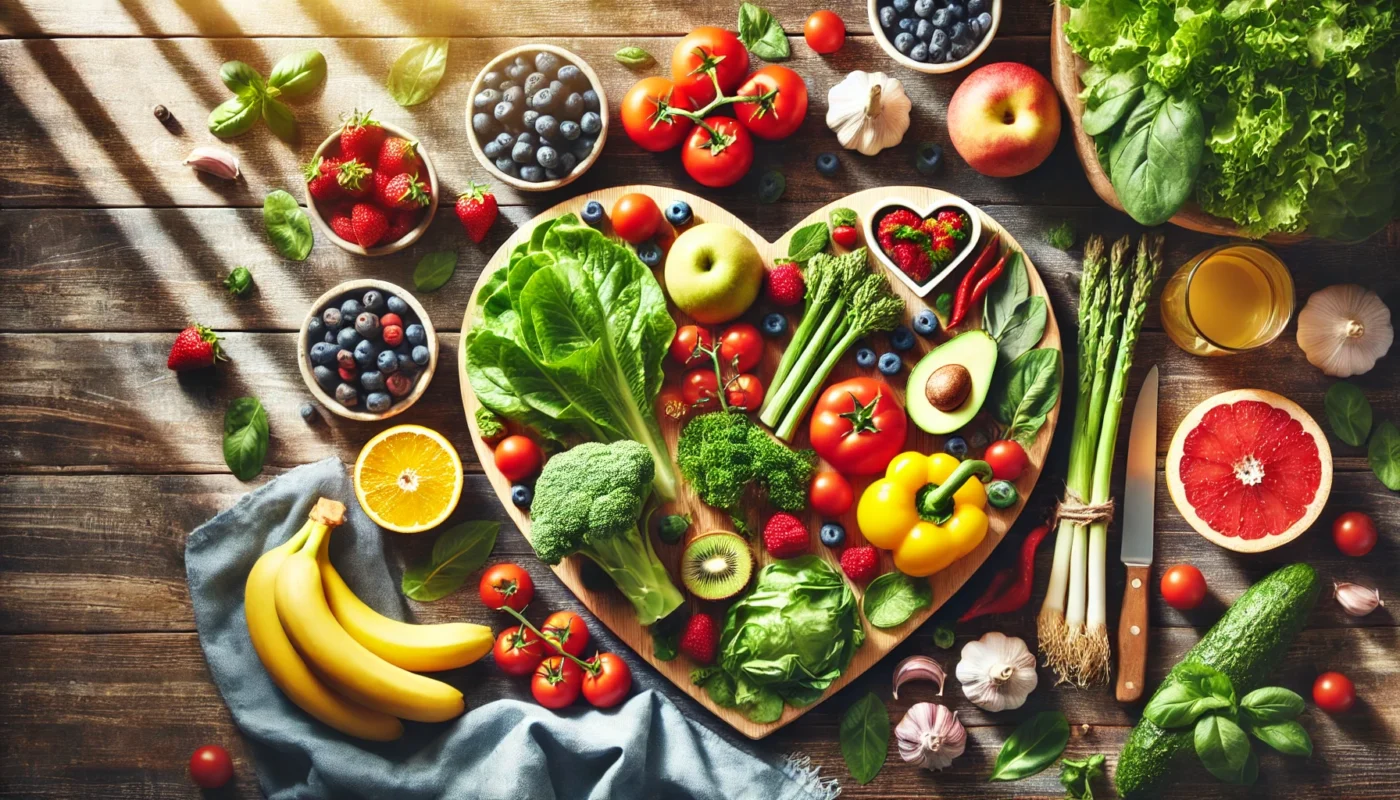Hypertension, commonly known as high blood pressure, is a significant global health concern, affecting over 1.28 billion people worldwide according to the World Health Organization (WHO). While salt has long been vilified as a primary dietary contributor to hypertension, recent research points to another hidden culprit: sugar. Excessive sugar consumption, particularly from added sugars in processed foods and beverages, is increasingly recognized as a major factor in the development and progression of hypertension. This article explores the relationship between hypertension and sugar, the physiological mechanisms involved, and practical strategies to reduce sugar intake for better heart health.
You May Also Like: The Best Superfoods for Hypertension: What to Add to Your Plate
Hypertension and Sugar: Its Prevalence in Modern Diets
What Are Added Sugars?
Added sugars are any sugars or syrups added to foods and beverages during processing or preparation. Unlike naturally occurring sugars in fruits and dairy products, added sugars provide no essential nutrients and contribute to “empty” calories.
Common sources of added sugars include:
- Sugary beverages like sodas, energy drinks, and sweetened teas.
- Desserts such as cakes, cookies, and pastries.
- Processed foods, including cereals, sauces, and condiments.
Global Sugar Consumption Trends
According to a report from the American Heart Association (AHA), the average adult consumes about 77 grams of added sugar per day, far exceeding the recommended limit of 25 grams for women and 36 grams for men. This overconsumption is closely linked to rising rates of obesity, type 2 diabetes, and cardiovascular diseases, including hypertension.

The Link Between Hypertension and Sugar
The relationship between hypertension and sugar is multifaceted, involving both direct and indirect mechanisms.
1. Hyperinsulinemia and Insulin Resistance
Excessive sugar intake increases insulin secretion, a hormone responsible for regulating blood sugar levels. Over time, chronic overconsumption of sugar can lead to insulin resistance, a condition where cells become less responsive to insulin. This has several effects on blood pressure:
- Sodium Retention: Insulin resistance promotes sodium retention by the kidneys, leading to increased blood volume and elevated blood pressure.
- Vascular Stiffness: High insulin levels cause the walls of blood vessels to thicken and lose elasticity, further raising blood pressure.
- Evidence: A study published in Diabetes Care (2015) found that individuals with insulin resistance were 1.5 times more likely to develop hypertension compared to those with normal insulin sensitivity.
2. Increased Sympathetic Nervous System Activity
Sugar consumption can activate the sympathetic nervous system, which regulates the “fight or flight” response. Chronic activation increases heart rate and constricts blood vessels, resulting in sustained high blood pressure.
- Evidence: Research in Hypertension (2017) showed that consuming sugary beverages was associated with a significant increase in systolic blood pressure (SBP) within 30 minutes, with prolonged effects observed in habitual consumers.
3. Chronic Inflammation
Excess sugar intake triggers the release of pro-inflammatory cytokines, contributing to systemic inflammation. Chronic inflammation damages the endothelium (the inner lining of blood vessels), impairing vascular function and increasing blood pressure.
- Evidence: A study in The Journal of Nutrition (2018) linked high sugar consumption to elevated levels of C-reactive protein (CRP), a marker of systemic inflammation, which is strongly associated with hypertension.
4. Weight Gain and Obesity
Sugar-sweetened beverages and foods are significant contributors to weight gain due to their high calorie density and low satiety. Obesity is a well-established risk factor for hypertension, as excess body weight increases vascular resistance and places additional strain on the heart.
- Evidence: A meta-analysis in Circulation (2019) found that reducing sugar-sweetened beverage intake led to significant weight loss and improvements in blood pressure, particularly among overweight and obese individuals.
The Role of Fructose in Hypertension
Fructose, a component of table sugar (sucrose) and high-fructose corn syrup (HFCS), has garnered particular attention for its role in hypertension. Unlike glucose, fructose is metabolized primarily in the liver, where it contributes to:
- Uric Acid Production: Fructose metabolism generates uric acid, which can impair nitric oxide production, a molecule essential for blood vessel relaxation.
- Liver Fat Accumulation: Excess fructose promotes fat storage in the liver, leading to metabolic dysfunction that exacerbates hypertension.
- Evidence: A study in The American Journal of Clinical Nutrition (2020) found that diets high in fructose increased SBP by 7 mmHg and diastolic blood pressure (DBP) by 4 mmHg within six weeks.
Addressing Common Myths About Hypertension and Sugar
Myth 1: “Only Salt Affects Blood Pressure”
While sodium has long been the focus of dietary recommendations for hypertension, sugar plays an equally critical role. Recent research suggests that reducing sugar intake may be more effective than salt reduction in lowering blood pressure in certain populations.
Myth 2: “Natural Sweeteners Are Always Better”
Honey, agave syrup, and other natural sweeteners contain fructose and glucose, which can have similar effects on blood pressure when consumed in excess.

Practical Strategies to Reduce Sugar Intake
Reducing sugar consumption is an essential step in managing hypertension and improving overall health. Here are actionable strategies to achieve this goal:
1. Read Nutrition Labels
Look for hidden sugars in packaged foods. Ingredients like high-fructose corn syrup, sucrose, and maltose indicate added sugars.
- Tip: Aim for products with less than 5 grams of added sugar per serving.
2. Choose Water Over Sugary Beverages
Replacing soda, energy drinks, and sweetened teas with water or unsweetened beverages is one of the simplest ways to cut down on sugar.
- Evidence: A randomized controlled trial in BMJ Open (2020) found that replacing one sugary beverage per day with water reduced SBP by an average of 3 mmHg.
3. Limit Processed Foods
Many processed foods, including sauces, dressings, and snacks, contain hidden sugars. Opt for whole, unprocessed foods to minimize sugar intake.
4. Opt for Natural Sweetness
Choose whole fruits instead of fruit juices or candies. The fiber in fruits slows sugar absorption, reducing its impact on blood pressure.
5. Cook at Home
Preparing meals at home allows for better control over ingredients and reduces reliance on packaged foods with added sugars.

Nutritional Supplements to Support Cardiovascular Health
In addition to reducing sugar intake, certain nutritional supplements can help support vascular health and manage hypertension. Below are five evidence-based options:
1. Omega-3 Fatty Acids
Omega-3s from fish oil reduce inflammation and improve arterial health. A meta-analysis in Hypertension (2018) showed a 4 mmHg reduction in SBP with omega-3 supplementation.
2. Hibiscus Extract
Hibiscus promotes nitric oxide production, enhancing blood vessel relaxation. The Journal of Nutrition (2010) reported a 6 mmHg reduction in SBP with daily hibiscus tea consumption.
3. Coenzyme Q10 (CoQ10)
CoQ10 reduces oxidative stress and supports heart function. A clinical trial in Hypertension Research (2007) demonstrated an 11 mmHg reduction in SBP with CoQ10 supplementation.
4. Beetroot Powder
Beetroot powder is rich in nitrates, which improve vascular flexibility and reduce blood pressure. A study in Nutrition Journal (2017) found a 4 mmHg reduction in SBP with beetroot supplementation.
5. Magnesium Glycinate
Magnesium helps relax blood vessels and improve insulin sensitivity. A study in Magnesium Research (2016) found that magnesium supplementation reduced SBP by 5 mmHg in individuals with hypertension.
Conclusion: Hypertension and Sugar
While sodium has traditionally been the focus of dietary guidelines for hypertension, the hidden role of sugar in elevating blood pressure deserves equal attention. Excessive sugar intake contributes to hypertension through mechanisms such as insulin resistance, inflammation, and weight gain. Addressing this issue requires a multifaceted approach, including reducing sugar consumption, adopting heart-healthy dietary habits, and incorporating evidence-based nutritional supplements. By understanding and addressing the hidden risks of sugar, individuals can take proactive steps to manage hypertension and improve overall cardiovascular health.

References
- Diabetes Care. (2015). Insulin resistance and hypertension: A longitudinal study. Diabetes Care. Retrieved from https://diabetesjournals.org
- Hypertension. (2017). Sugar-sweetened beverages and acute blood pressure effects. Hypertension. Retrieved from https://www.ahajournals.org
- The Journal of Nutrition. (2018). Sugar consumption, inflammation, and cardiovascular risk. The Journal of Nutrition. Retrieved from https://academic.oup.com
- Circulation. (2019). Reducing sugar-sweetened beverage intake: Impact on blood pressure. Circulation. Retrieved from https://www.ahajournals.org
- The American Journal of Clinical Nutrition. (2020). Fructose consumption and blood pressure: A controlled trial. The American Journal of Clinical Nutrition. Retrieved from https://academic.oup.com
Key TERMS for this article:
Hypertension, Added Sugars, Insulin Resistance, Blood Pressure, Fructose, Cardiovascular Health, Nutritional Supplements
Relevant and useful TAGS for this article:
Hypertension, Blood Pressure Management, Sugar Reduction, Heart Health, Fructose, Dietary Interventions, Insulin Resistance, Cardiovascular Health, Healthy Eating, Nutritional Supplements
Important Note: The information contained in this article is for general informational purposes only, and should not be construed as health or medical advice, nor is it intended to diagnose, prevent, treat, or cure any disease or health condition. Before embarking on any diet, fitness regimen, or program of nutritional supplementation, it is advisable to consult your healthcare professional in order to determine its safety and probable efficacy in terms of your individual state of health.
Regarding Nutritional Supplements Or Other Non-Prescription Health Products: If any nutritional supplements or other non-prescription health products are mentioned in the foregoing article, any claims or statements made about them have not been evaluated by the U.S. Food and Drug Administration, and such nutritional supplements or other health products are not intended to diagnose, treat, cure, or prevent any disease.

